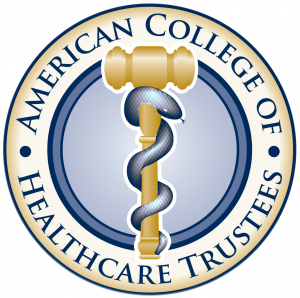American College of Healthcare Trustees Fellow Stan Gutkin Advances Value Based Care

Stan Gutkin and CCM use technology to help physicians care for the chronically ill
Medicare is providing incentives to physicians that provide value based care. Targets include zero unneccessary hospitalizations, ER Visits, and ambulance runs.
Clinical outcomes are measurable changes in health, function or quality of life that result from our care. Constant review of our clinical outcomes establishes standards against which to continuously improve all aspects of our practice. Clinical outcomes can be measured by activity data such as hospital readmission rates, or by agreed scales and other forms of measurement. They can be recorded by administrators or by clinical staff such as doctors, nurses, psychologists or allied health professionals (e.g. physiotherapists, dietitians).
Physicians do their best to provide the best care to their chronic care patients. Things happen, however, that are beyond their control. Patients forget to take meds or take them more frequently than prescribed. They forget appointments with other providers. These and other similar care gaps are difficult for healthcare providers to prevent or even to reduce. CCM Health uses nurses to promote health literacy among doctors' patients and to ensure that doctors' orders are fulfilled.
At CCM Health, they look at physicians' patient population and use their CCM platform to manage and observe medications, doctor appointments and other information. Their team of medical professionals monitors this data and alerts the physician as issues arise.
CCM Health team will contact a practice's patients population at least once a month to ensure medications are taken in the right dosage, no new alarming symptoms arise and if any report to our health provider to take action and reduce serious conditions and hospitalization rates.
Chronic care management includes any care provided by medical professionals to patients who have chronic diseases and conditions. A disease or condition is chronic when it lasts a year or more, requires ongoing medical attention or limits the activities of daily life. It includes physical conditions like diabetes or mental conditions, like depression.
In the United States, chronic care management (CCM) refers to the chronic care services provided to Medicare beneficiaries with more than one chronic condition. Services include not only in person, face-to-face visits but also communication and the coordination of care related to the chronic conditions that a patient faces.
Chronic care management involves a comprehensive care plan that includes:
A record of the patient’s chronic conditions
Personal Information
Goals
Health Care Providers
Medications
Any other services needed to manage their condition.
The comprehensive care plan explains to a patient the details and coordination of their care.
Recently, Medicare expanded to pay, in part or in full, for a patient’s CCM if they have two or more chronic conditions that are expected to last at least a year.
Imagine being able to observe, report, and analyze a patients’ acute or chronic conditions no matter where they are in the world. Remote patient monitoring devices make that possible for both clinicians and program directors in real-time.
RPM is relevant to those treating a patient with diabetes, high blood pressure, atrial fibrillation, or dementia.
Whether it’s Fitbits, wearable heart monitors, Bluetooth-enabled scales, glucose monitors, skin patches, shoes, belts, or maternity care trackers, these non-invasive devices acquire, transmit, process, and store patient data—so clinicians can retrieve it right when they need it.
Remote patient monitoring devices take the stress and scramble out of healthcare for a wide range of patients, and can help all kinds of specialists do their job more effectively and efficiently—and ultimately, more joyfully. This form of telehealth can also provide comfort and reassurance for the families of patients who are at a higher risk of falls or accidents using sensors that send alerts to both family members and medical providers.
CCM is founded on these cardinal principles: Quality of Care, Reduction of Health Care Expenses, and Regulatory Compliance. To meet CCM’s cardinal principles and the mandates of corporate compliance, CCM has consistently, and on an ongoing basis, consulted with outside compliance specialists and engaged outside legal counsel. To identify and assess compliance matters, CCM’s compliance review includes billing and coding questions, and the appropriateness of business services to physician practices all in light of state and federal anti-kickback statutes, state and federal false claims acts, state and federal stark laws, and other pertinent health care industry laws and regulations.
DAVID LEVIEN, MD,MBA,FACS
AMERICAN COLLEGE OF HEALTHCARE TRUSTEES
+1 844-322-4867 ext. 101
email us here
Visit us on social media:
Facebook
Twitter
LinkedIn
Other
Legal Disclaimer:
EIN Presswire provides this news content "as is" without warranty of any kind. We do not accept any responsibility or liability for the accuracy, content, images, videos, licenses, completeness, legality, or reliability of the information contained in this article. If you have any complaints or copyright issues related to this article, kindly contact the author above.


